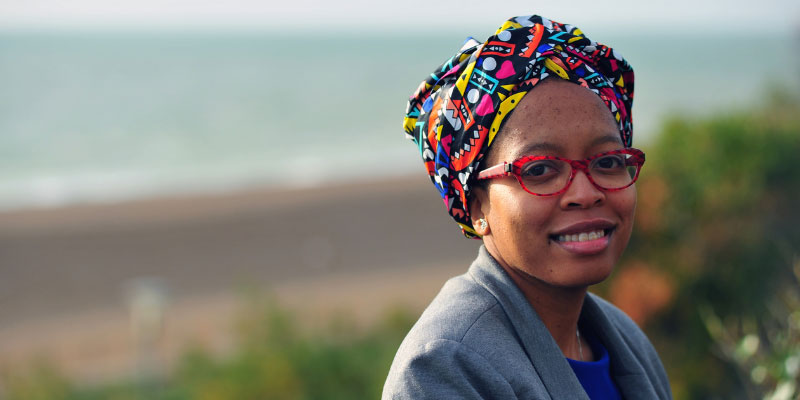
Dr Patricia Hamilton
Patricia Hamilton (Lecturer and Chair of the Ethics Committee in the Department of Sociology), on parenting, race and why we need to prioritise care before work.
Can you tell us a little about your area of research?
My area of research is parenting culture studies, which is focused on how parents go about raising their children, particularly young babies and infants and toddlers.
I'm particularly interested in this from the perspective of racially minoritised families. How does race influence parenting? How does race influence the kind of policies that parents have to navigate in order to balance work and family?
My current project focuses on parental leave policies since the 1970s, and how black families in particular are negatively impacted by them.
These policies are for all parents, but they exclude those who don't work in traditional employment or have disposable income to make up for the fact that statutory maternity pay and statutory paternity pay is not equivalent to a living wage.
I want to develop policies that will help those types of parents, regardless of where they're located in the social structure, so that they can spend time with their children, especially when they're first born.
What do you love about your work and your research?
I love the surprises. Even when I have what I think is quite a clear idea of what I expect to come across, when I talk to parents, when I watch parents interact with their children, when I look at policy, people say things that I could not expect or anticipate.
This leads me down completely new paths and gets me excited. It reminds me why I got into this research topic in the first place. People are wondrous and contradictory - they are such interesting subjects to research.
What is the most challenging aspect of your research?
The biggest challenge is getting the government to respond and invest in goals like equity, liberation and freedom from oppression.
The activists, other researchers, charities and parents themselves are all interested in finding a solution to the problem of work-family balance, and how to find the time and the resources to spend quality time with their children when they're born. What we need now is for government and policymakers to act. We need opportunities to work with them, to show them the research, and offer ways of thinking about equitable parenting policies that help more parents.
What do you wish for to move your research to move forwards?
It's cliche but more funding! Funding makes research possible and encourages people from all parts of our society to participate in the work of generating knowledge.
For instance, I work with many people who aren't employed in traditional jobs. They take time out of their day to talk to me and tell me about their experiences navigating parenting policies, and in doing so they’re potentially losing income and time with their children. So I wish for more funds to enable participants to be interviewed and be compensated for the time that they lose when they decide to engage.
What do you want the world to look like in the next 60 years because of the research you’re doing?
I hope that we will live in a world where people's work doesn't define them. Where economic productivity is not the defining value of being a good citizen. And that we prioritise care. And not just care for children, but care for ourselves, care for the people we work with, the people we live with, care for people with disabilities, care for the elderly.
I want to see a world in which care is the primary focus of all our efforts and energies, and the work that we engage in is all in an effort to make sure that everyone is cared for in the most appropriate manner for their particular needs. I hope that my research will contribute to that. It feels like a tall order right now, but I'm trying!
Imagine your wishes all became reality. What would you do? What would the country look like or the world look like if these things were made real now?
A world in which we prioritise care would free so many people from the sense that they're not good enough because they're not economically productive, which is such a narrow way of understanding people's contribution to our society.
We would have freedom. Freedom to engage in art, dance, music; freedom to work together and discover new things, new ways of addressing illness, new ways of exploring the world beyond our Earth. I can't think of anything else but freedom, liberation. How wonderful that would be.
Find out more about Patricia's research:
